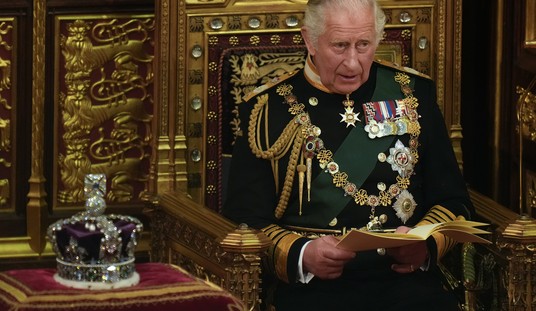Via Scott Shackford and Aaron Blake, I’m skeptical but it’s hard to argue with results from Marist that are this consistent across three very different states.
Three very important early primary states, too. We’ll start with Iowa. Second look at Rob Portman 2016?

The phrasing of the question is odd. Rather than asking whether support for gay marriage in a presidential candidate is a dealbreaker, Marist asks whether opposition is. Logically you’d want to rephrase this for each party to align it with their respective orthodoxies. Opposition might be unacceptable for Democrats because most of the party supports gay marriage now. Most Republicans don’t (I think), in which case you should be asking whether support is acceptable. But whatever. The question is clear enough. You would think, for Iowa’s socially conservative GOP, that opposing SSM would be widely acceptable, but it isn’t. The split among Republicans is just 52/44, and among the likely Republican electorate next year, it’s just 50/47. (Tea partiers are more strongly anti-SSM at 60/37.)
What about more liberal New Hampshire?

Both Republicans and potential Republican voters are more likely to say that opposing gay marriage makes a candidate unacceptable than acceptable — a clear majority in the case of the second group. And not just a little unacceptable either. When you drill down into the numbers, you find that 31 percent of potential GOP voters say it’s “totally” unacceptable versus 22 percent who say it’s merely “mostly” unacceptable. Huh.
Surely deep red South Carolina will be more anti-SSM than New Hampshire, right? Well…

Clear majorities(!) of Republicans and potential Republican voters say it’s unacceptable to be anti-SSM. Again, those who say it’s “totally” unacceptable outnumber those who say it’s “mostly” unacceptable in both cases. Even tea partiers, although still opposed to gay marriage on balance, tilt that way only narrowly at 52/47.
How to explain that? One possibility is that even Republicans are coming around on gay marriage. An NYT poll taken last September showed 41 percent of GOPers in favor of legalizing SSM; a Pew poll taken six months earlier found 39 percent in favor, including 61 percent of young Republicans. The broader public has moved famously quickly from opposing gay marriage to supporting it. Maybe the new Marist numbers show a similar burst of support among Republicans over the past six months as one judge after another (including Republican appointees) has found that gays have a right to marry as a matter of equal protection.
Even so, that seems like an awfully fast “evolution.” What you may be seeing in these numbers is evidence not that GOP voters support gay marriage on the merits but evidence that they want their candidates to stay away from the issue going forward. You can oppose SSM while also believing that the federal government, including federal judges, should leave it to the states to decide. That’s Ted Cruz’s position and it’ll end up being the position of most Republican candidates running for president, knowing that they’ll have primary problems if they sound too ambivalent about SSM and general-election problems if they sound too opposed to it. The safe straddle is to be personally opposed to gay marriage while also opposed to using the federal government to try to block it. I’ll bet lots of GOPers in the “unacceptable” camp understood the question to be asking about a candidate’s policy position, not his personal position: They might be more comfortable with a pol who favors traditional marriage but they might also want to avoid nominating any Huckabee types who’ll threaten to make this issue a centerpiece of the coming campaign. That’s my read on what’s happening here, but YMMV.








Join the conversation as a VIP Member